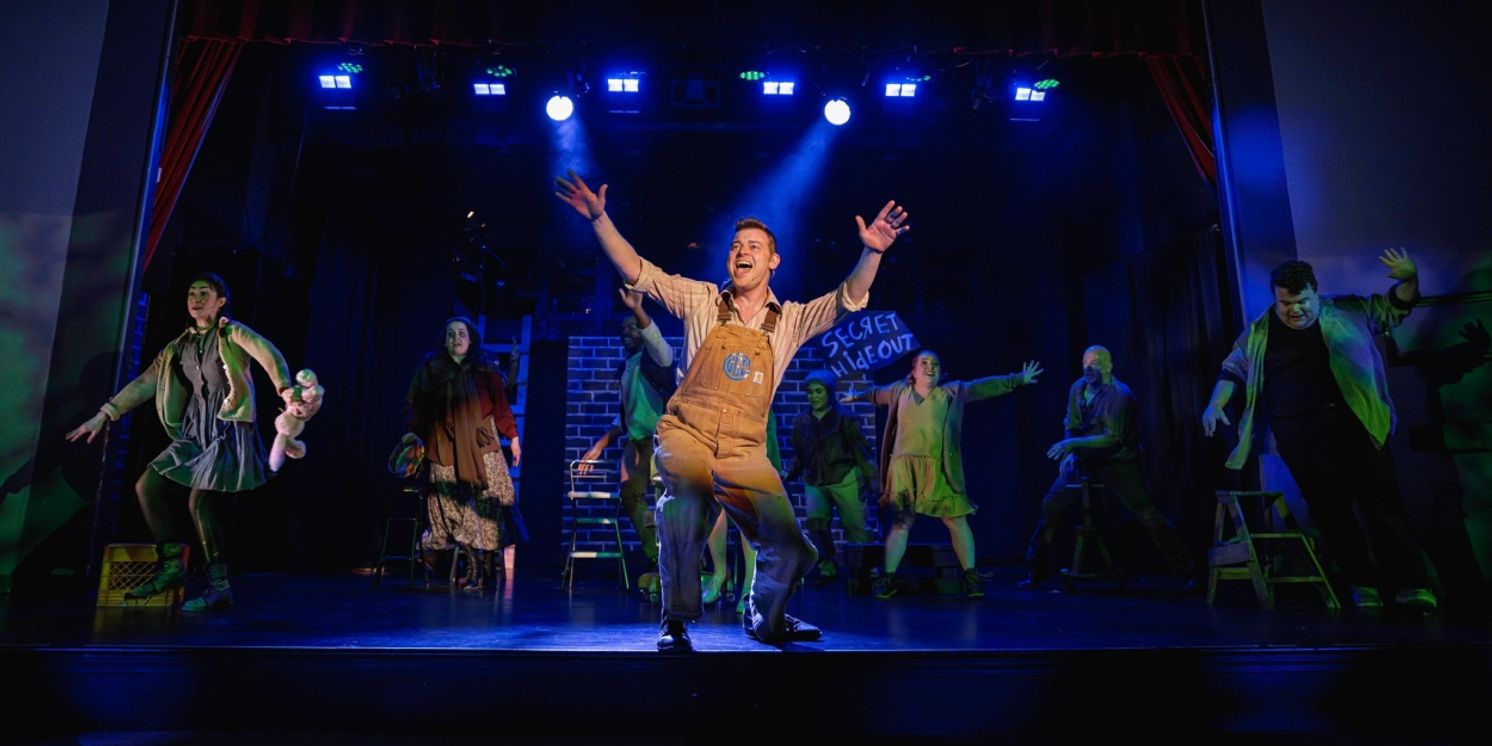Review: URINETOWN Hits Below the Belt at The Lamp Theatre
Split Stage's latest musical runs February 2-10 at the Lamp in Irwin

If you asked me about important works of twentieth century literature, I'll rattle off all the obvious ones like The Great Gatsby and Death of a Salesman, but I'll also make a case for the first ten years of The Simpsons as an essential piece of American literature. Hyper-referential, joke dense, topical and infinitely quotable, so many of the idioms of the twentieth century began in The Simpsons that it's earned a place beside Mark Twain for its quotes alone. Mark Hollman and Greg Kotis's musical Urinetown may style itself as a satirical twist on Brecht and Blitzstein, but any media-savvy viewer will immediately recognize that Matt Groening and Conan O'Brien are its real artistic forefathers.
Directed by Split Stage cofounder Rob Jessup and music directed by Chris McAllister, Urinetown tells the story of a show... kinda. While there's not a "show within a show" proper, the characters are well aware that they're in a musical, and comment constantly not only on the show but on its structure and marketing. In the not-so-distant future, which looks, acts and sounds more like the early twentieth century, a drought has led to the collapse of American society. Business mogul Caldwell B Cladwell (Stefan Lingenfelter) runs a corporation ostensibly dedicated to solving the drought crisis, but mostly to monetizing it by operating pay toilets the poor are forced to use. Anyone who disobeys this regulation and "pees for free" elsewhere is "sent to Urinetown," a euphemism so obvious and blatant that even our narrator Officer Lockstock (Bill Elder) blurts out its true meaning about a single scene in. Toilet attendant Bobby Strong (Anthony Palermo) and Cladwell's daughter Hope (Victoria Buchtan) are quickly radicalized, launching a revolution against Cladwell's corporate fascism, only to find themselves conflicted when the revolution turns on itself, and on Hope.
A show as stylized as Urinetown relies on performers who understand the assignment, and can balance the heartfelt and the cartoonish equally. Anthony Palermo and Victoria Buchtan sing wonderfully in their duets and solos, and manage to balance their archetypal roles with also playing two of the dumbest and most empty-headed characters in musical theatre. It's hard to think how Buchtan in particular keeps a straight face with some of Hope's lines, but she always does. The supporting cast is full of the more overtly colorful characters, like Courtney Harkins's hyper-belty, melodramatic antiheroine Penelope Pennywise, Kevin Bass's psychotic rebel Hot Blades Harry and Caleb Feigles's vainglorious wannabe tough cop Officer Barrel. The main villains are clearly the most fun, though, with Stefan Lingenfelter as affably sadistic Cladwell and Mike Hamilla as his craven, money-grubbing political henchman Senator Fipp. (A special shout-out goes to James Firment as Cladwell's mouthpiece Mr. McQueen: nowhere in the show is the Simpsons influence more obvious than "literally just putting Smithers into Urinetown," but Firment never fully goes there and gamely differentiates his character from the obvious inspiration.) It's a cast full of bizarre characters, played to the hilt by a cast full of local favorites who are clearly relishing the stylized, over-the-top acting style this musical requires.
The show's satirical sense doesn't go exactly where you expect it to, leaning more into nihilism than the progressive political message it initially seems to be pushing. That's part of the joke, naturally, taking the mickey out of the Brecht-Weill shows that were often characterized, rightly or wrongly, as socialist agitprop. When the curtain closes on a hilariously bleak ending with one final rousing chorus of "Urinetown," audiences won't exactly be moved to action, but they'll be moved to applaud until their hands fall off, which is honestly just as good.
Reader Reviews
Videos

